NI Child Safeguarding
PART 6: SHARING INFORMATION AND RECORD KEEPING
COMMUNICATIONS POLICY
Spreading the word, sharing resources and raising awareness about safeguarding children throughout the Church of Ireland is an essential element of Safeguarding Trust. It is important that all stakeholders feel informed and have an opportunity to have their say.
The Safeguarding Board shall devise a communications strategy to ensure the ongoing dissemination of information about safeguarding children and the provision of support to dioceses and parishes to ensure the proper implementation of Safeguarding Trust.
Dioceses and parishes shall devise a communications policy which sets out how communication will happen in children’s ministry activities, between the parish/diocese and parents/guardians and children and the wider community. The policy will set out the dioceses/parishes intention to involve parents/guardians and children and share information in an open and transparent way.
WORKING IN PARTNERSHIP WITH PARENTS/GUARDIANS POLICY
Working in partnership with parents/ guardians helps to safeguard children. The Church of Ireland sees the welfare of children as paramount and therefore seeks to form positive relationships between bishops/clergy/staff/volunteers and parents/guardians to encourage mutual trust and support and so dioceses/parishes should adopt a policy for working in partnership with parents/guardians.
CONFIDENTIALITY AND SHARING PERSONAL INFORMATION
All information about a child and family should be handled by bishops, clergy, staff and volunteers in a confidential and sensitive manner. It is important to note that whilst bishops, clergy, staff and volunteers will do their utmost to ensure the confidentiality of information there are occasions where personal information will be shared.
Where a child protection or welfare concern arises, information will be shared on a need to know basis in the best interest of a child with the relevant statutory authorities and with parents/guardians. Data protection regulations recognise that in certain circumstances information can be shared in the interests of child protection, but that such sharing must be necessary and proportionate.
Bishops, clergy, staff and volunteers working with children should make it clear to children and their parents/guardians that they cannot give undertakings regarding secrecy.
Parents/guardians and children will be informed if personal information is being shared with statutory authorities, unless doing so could put the child at further risk or the bishop/clergy/ staff/volunteer/Panel member making the report at risk.
RECORD KEEPING
CHILD PROTECTION RECORDS
The Panel is responsible for keeping the following records relating to Safeguarding Trust in a locked filing cabinet.
- Any disclosures, concerns or allegations of child abuse.
- Records relating to disclosures, concerns or allegations of abuse including reports from bishops/ clergy/staff/volunteers, reports to Gateway / Social Services, including informal advice from the Gateway / Social Services, informing parents/guardians, reports to the PSNI, advice given to bishops/clergy/staff/volunteers.
- Any complaints about the safety and welfare of children while at children’s ministry activities.
- Any protective measures or action taken in relation to an allegation against a staff/volunteer.
- Any actions taken in response to a complaint against bishop/clergy/staff/volunteer.
The Panel members are the only people who have access to these child protection records.
The Parish Panel will review all Child Protection records twice a year and keep them updated. The Panel shall report to each meeting of the Select Vestry on Safeguarding Trust matters without revealing any details of individual cases unless the situation so warrants.
Child Protection records held by the bishops and the Child Protection Officer shall be kept in
a locked filing cabinet. The bishops and the Child Protection Officer shall ensure that all Child Protection records held by them are kept up to date and shall ensure that such records are handed over in their entirety to their successors.
PERSONNEL RECORDS
Personnel records for all staff and volunteers including application forms, declaration forms,
notes from interviews, reference forms, vetting disclosures, forms of identification, declarations of acceptance, volunteer agreements shall be kept securely in a locked filing cabinet by the Parish Panel.
The Parish Panel members alone will have access to these personnel records. Individual staff or volunteers may request in writing to see the information held relating to them.
These records will be updated regularly with information from the support meetings held with staff and volunteers.
The bishop of the diocese will hold personnel records for the clergy in their charge and these must be stored as per current data protection legislation.
GROUP RECORDS
Membership/Registration consent forms, parental consent forms and attendance records for each group are held by the clergy/staff/volunteers leading that group for the year those records pertain to. At the end of each year the clergy/staff/volunteers shall ensure that these records are handed over to the Parish Panel to be stored in the locked filing cabinet.
All completed accidents and incidents books/forms will be held by the Parish Panel in the locked filing cabinet.
DATA PROTECTION AND STORAGE OF INFORMATION
The General Data Protection Regulations and Safeguarding Trust guidelines set out the appropriate safeguards which must be in place to ensure the safe storage of information and sets out the retention period for the various records held by the Panel.
NB The careful handling of information should not inhibit the availability of necessary information about children.
CONVERSION OF CHILD SAFEGUARDING RECORDS FROM HARD COPY TO DIGITAL COPY
Where a parish/dioceses/diocesan body or organisation wishes to convert records from hard copy to digital copy the following steps should be taken:
- The Select Vestry shall agree to the conversion of the records to digital format, what records shall be converted, who shall undertake this conversion and what time period of records shall be converted. These details shall be recorded in the Select Vestry minutes.
- The relevant records shall then be scanned and the digital copy stored on a password protected external hard drive. No converted records should be stored on a cloud or on a network linked computer to avoid breaches of data protection.
- The external hard drive shall be stored in the panel filing cabinet.
- In order to ensure that the data on the external hard drive is not lost if it should become corrupted or is damaged, a backup of the external hard drive should be made on a second password protected external hard drive and it should be stored in a separate location (e.g. in the Rectory or by another panel member).
- A check should be undertaken that all the information contained on the hard copy is legible on the digital copy and no document has been missed in conversion process before the hard copy records are shredded and destroyed.
- Due to the length of time that certain records have to be kept it is essential that the digital records are migrated or converted as technology develops as the records need to remain accessible.
- Additional records can be converted over time, but each time records are to be converted, this should be agreed by the Select Vestry as above.
Before commencing conversion of records from hard copy to digital copy, consideration must be given to the time it will take to convert the records, the cost factor (if any) and the ongoing responsibility of ensuring that the digitised records will remain accessible in light of technological advances.

